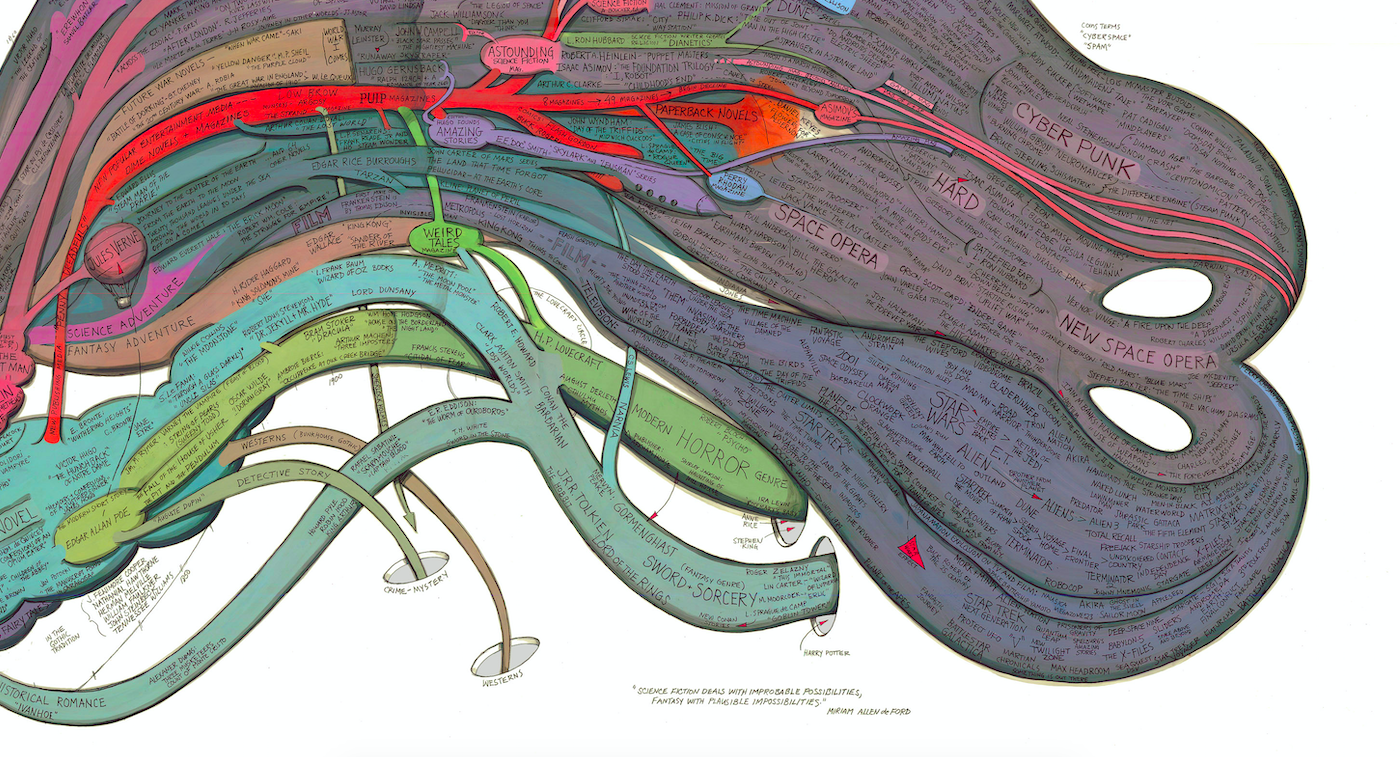Formalizing the Subject:
Dialectics & Cybernetics in Cahiers Pour L’Analyse & CCRU Instructor: Daniel Sacilotto Date & Time: Saturdays, September 21, 28, October 5, 12, 19, 26, November 2, 9 2 PM - 4:30 PM ET

DESCRIPTION This Seminar examines two unique think-tanks to emerge in philosophy in the last 50 years: The Cahiers Pour L’Analyse and the Cybernetic Research Culture Unit. These two research groups paved the way to an unprecedented experimental and interdisciplinary practice which reconfigured the classical philosophical dichotomy between rationalism and empiricism in the wake of new advances in the sciences and arts. They also opened a lever to overcome the stale dichotomy between analytic and continental approaches in the contemporary context. As we shall see, both vectors of study are not just accidentally paired, but can be seen as two poles that answer in divergent ways to an integral and cohesive set of imperatives, following thus overlapping theoretical and practical aims. Central among these was the pursuit of a formal and interdisciplinary experimentalism, leading to an uncompromising rejection of postmodern relativism and of the post-Heideggerean phenomenological legacy, including its historicist and Derridean textualist sequels. In doing so, both vectors conceived of parallel projects for a thorough formalization of the subject. This would overcome the residual humanist piety which lingered in 20th Century philosophical attempts to radicalize the critical impetus of Enlightenment rationality.
Using either mathematical formalization or cybernetic functional mappings outside the realm of regulated scientific practice, they lead to varied figurations of the post-human future and a reconsideration of the scope of the revolutionary process after Marx. These convergences, however, also reveal a crucial methodological dividing line, within which diametrically different views about the relationship between the subject and the world are forged, and within which the future of collective “humanity” becomes problematized. Thus, as we shall see, the Cahiers followed above all the anti-humanist spirit of the Lacanian attack on the figurations of ‘ego-psychology’ in an attempt to re-integrate these into the philosophical imaginary, in continuity with the Althusserian rekindling of the philosophical dialectic and revolutionary subject in the horizon of structuralist thought. It also expanded the formal epistemological orientation developed by Bachelard and others. In doing so, they would take mathematical-semiotic formalization as the means to reconceive of the traditional aims of philosophy in its materialist scope, and of the Marxist-oriented revolutionary subject. In turn, the CCRU exploited an alternative, ‘schizoanalytic’ model and machinic ontology closely aligned to the works of Deleuze and Guattari against the perceived idealist and structuralist excess of Lacanian psychoanalysis, exacerbating the anti-humanist impetus of unearthing an impersonal subjectivity which could not be reconciled with traditional forms of revolutionary practice. Accordingly, decanting all residual vitalist or humanist tropes from the Deleuzean text, the CCRU progressively produced aberrant theory-fictional mythologies in which cybernetic theory and non-mathematical numeracies served to construct a ‘hyperstitional’ practice that resisted recapture by the traditional valences of philosophical narrativization. They ultimately forecasted a productive intellectual mechanism not tractable to the resources of deliberative cognition or collective resistance within which human temporality was not only dislodged from a phenomenological individual horizon, but precluded the possibility of incorporation into a communal subject guided by normative-historical imperatives. Finally, we shall extend our study into the historical antecedents which guide both of these trajectories, as well as their prescient influence in the contemporary philosophical landscape across a variety of registers.
The Seminar begins with an introductory Session providing the historical and theoretical background guiding our investigation. during the following two weeks we will examine a variety of texts from the Cahiers Pour Analyse, following closely the debate centered around the relation between structure, concept and form. This interrogation leads to profound questions concerning the legacy of structuralism and the role of mathematical formalization beyond its narrow application in the social sciences and psychoanalysis, probing the limits and interface of scientific and philosophical practice. During the following two sessions, we shall engage with the recently published collected writings from the CCRU in a systematic manner, and trace its attempt to forge a ‘hyperstitional’ practice in which Lovecraftian mythology and cybernetics converge toward the experimental practice of ‘theory-fiction’, and in which Deleuze and Guattari’s machinic ontology becomes subverted from a philosophical register into an alien register. During weeks six and seven, we will examine some of the contemporary ramifications of these two think tanks by focusing on two vectors of research within philosophy and theory in which the influence and tensions between their orientations of become prescient and intensified: A) The speculative realist sequence, and B) the so-called ‘neorationalist’ resurgence of universalist-systematic philosophy, in which one also finds a re-evaluation of the legacies of modern rationalism and empiricism after the 20th Century ‘deconstruction’ of metaphysics and critique of Enlightenment rationality. Finally, in the last session, we will briefly consider the emergence and development of the different versions and political inflections of the accelerationist program, and the practical horizon within from which the future draws its gradient.
IMAGE: Wad Shelly, The History of Science Fiction, ver. 1, 2011, detail
To see The New Centre Refund Policy CLICK HERE.
To see The New Centre Refund Policy CLICK HERE.